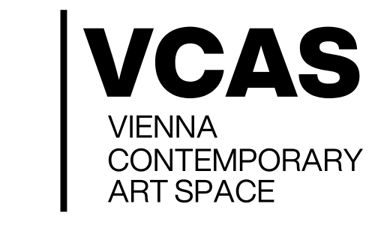MCCT - Midlands Conference in Critical Thought, 2024
Centre for Policy, Citizenship and Society + Department of Social and Political Sciences, Nottingham Trent University, UK.
Conference dates: April 5th to April 6th, 2024
VCAS is organising a conference stream with the theme: Productivity or Process: What is the Value in Making?
We're looking forward to interesting papers / presentations that will challenge the theme and the format of conference presentations.
UPDATE! A limited number of submitted proposals will be able to be done via Zoom/ video conferencing so presentations can be done remotely.
Theme / Topic: Productivity or Process: What is the Value in Making?
"The creative process is an end in itself; it is a performance, an improvisation, a journey into the unknown." - George Maciunas
Within the realm of contemporary art and intellectual discourse, the exploration of the creative process as an aim in and of itself has gained significant momentum in recent years. This interest reflects the broader societal tensions between economic productivity and output, and the fundamental meaning found within the endeavours themselves. Our central objective for this stream is to challenge the value of outcome over process, and explore the implications of elevating the act of creation itself above any tangible end result. How might this shift in perspective impact artistic practice, intellectual inquiry, and our broader cultural landscape?
Through interdisciplinary dialogues, the presentation of diverse case studies and participatory actions, we aim to create a space to explore the potential transformative power of process-centred approaches. In consideration of hierarchical structures, capitalistic systems, emerging technologies, rapid development of AI and growing economic strain, the case could be made that the pressure to produce outcomes with economic value is intensifying. Drawing inspiration from the avantgarde movement Fluxus, known for its emphasis on intermedia, performance, and dematerialization of art, we would like to challenge traditional art and societal boundaries.
Our aim is to unite diverse voices and prompt reflection on the enduring relevance of 'process' in contemporary artistic and intellectual discourse, challenging the prevailing emphasis on final outcomes. We invite submissions for presentations, demonstrations, performances or experimental workshops from across disciplines (creative practitioners, theorists, academics etc.) exploring topics including, but not limited to, the key questions below:
Process versus the end result in creative fields
• Is the creative process valued, or is the value only attributed to the finished object/ outcome? Can/ should this be challenged?
• Are the ideals and philosophies of movements like Fluxus still relevant today? Or is this an ideal that is outdated?
• In what ways have artists, filmmakers, writers and musicians used process and the ‘non-result’ as a way of pushing boundaries?
• Can process-centered thinking provide a challenge to established norms, disrupting hierarchical systems, and fostering inclusivity in creative fields? Productivity and value in society
• How much value do we, as a society, place on being productive/ efficient, and does this marginalise or impact certain groups
• How might the shift of prioritising process over the end result impact artistic practice, intellectual inquiry, and the broader cultural landscape?
• How do Western capitalistic systems and growing economic strain intensify pressure on artists to produce outcomes with economic value, and how does this affect the creative process - is this a positive or negative trend? New technologies, AI and the creative process
• In what manner do emerging technologies act as disruptors, not only of general labour, but also of creative processes?
• With the development of AI and robotics, more and more roles within the labour market are expected to become automated. Will this positively or negatively shift the creative human process? Do we care how we get the result (e.g. using AI to produce music), as long as the outcome is what we want?
This stream, for us, represents a unique opportunity to invite participants to observe, reflect and reimagine the possibilities, good or bad, of pursuit without a goal. We aim to bring together a diverse community of artists, academics, theorists, and writers for transformative discussions and innovative thinking that can help precipitate developments across the realms of art, academia, and beyond.
Call-out for papers / presentations!
Deadline: 6th December, 2023
Application:
Applications are to be submitted directly to the larger MCCT organisation, which will then forward the submission for our stream "Productivity or Process: What is the value in making" to our team at VCAS.
Application Process:
Please submit an abstract of your proposed presentation/paper, up to 500 words – PLEASE SUBMIT VIA A WORD DOCUMENT
Include in your abstract the name of our stream: "Productivity or Process: What is the value in making?"
Email your abstract to midlandscritical@gmail.com
Deadline:
The deadline for submissions is December 6th, 2023.
Contact:
For questions related to our stream specifically, please contact us directly at office@vcasvienna.com
For questions about larger MCCT conference, you can reach the organisers at midlandscritical@gmail.com
You can view the full list of streams here from the MCCT.
About the MCCT conference:
This is the inaugural MCCT which is an offshoot of the London Conference in Critical Thought (LCCT). As with the LCCT, the MCCT is an annual interdisciplinary conference that provides a forum for emergent critical scholarship, broadly construed. The conference is free for all to attend and follows a non-hierarchical model that seeks to foster opportunities for intellectual critical exchanges where all are treated equally regardless of affiliation or seniority. There are no plenaries, and the conference is envisaged as a space for those who share intellectual approaches and interests but who may find themselves at the margins of their academic department or discipline.
For more information about the ethos and structure of the conference please visit londoncritical.org
